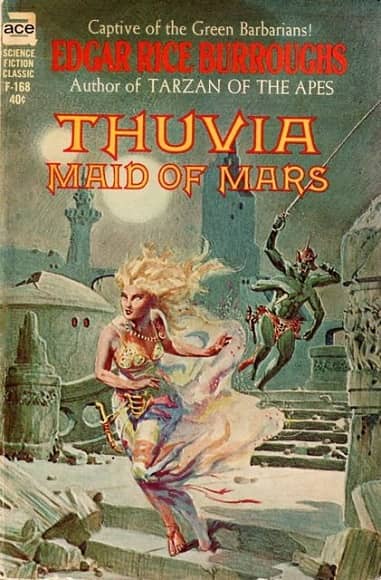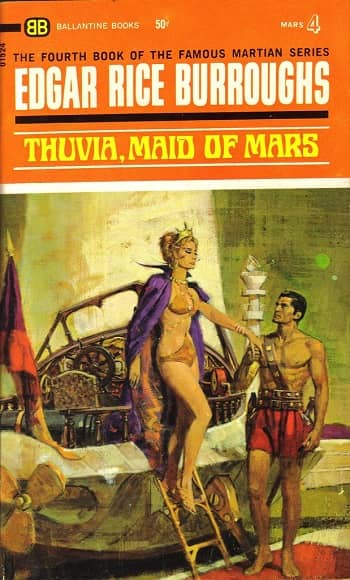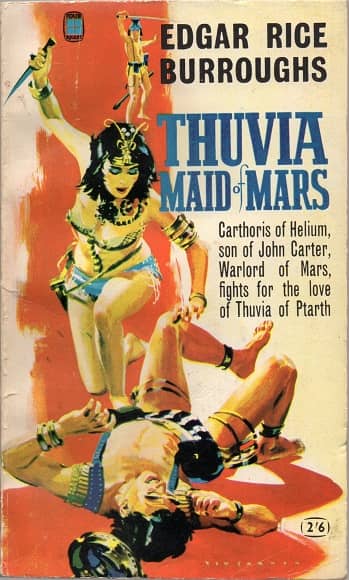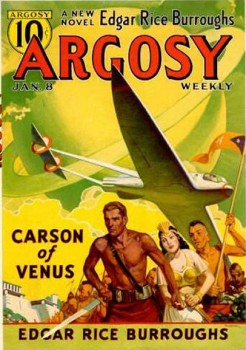Another Childhood Classic Disappoints: Thuvia Maid of Mars by Edgar Rice Burroughs
 |
 |
 |
Thuvia of Mars paperback editions (Ace 1962, Ballantine 1969, Four Square 1962). Art by Roy Krenkel, Jr., Bob Abbett, and Roy Carnon
During confinement and adjusting to a new job (while writing a new novel!), I’ve been feeling like my bandwidth is restricted. To calm my brain at times, I’ve been rereading books I enjoyed. My reread of the X-Men is well underway (here’s post X in the blog series), and I’ve also relistened to R. Scott Bakker’s Prince of Nothing (covered here by Theo), Charles Stross’ Saturn’s Children and the first two books of The Lord of the Rings. They were all good.
I’ve had rocky experiences on rereads before though. Dune aged poorly for me in some important ways (I detailed it here) and Anthony’s Spell for Chameleon had little redeem itself in my mind (the ways that reread fell flat are here).
I was optimistic about rereading my first novel experiences, Edgar Rice Burroughs though. I’d previously talked about Burroughs and the amazing biography written about him here. Princess of Mars, Gods of Mars and Warlord of Mars were all too well remembered so I downloaded Thuvia Maid of Mars at Librivox.org, which does audio recordings of public domain books. This novel was also discussed by Black Gate blogger Ryan Harvey a few years ago, so if you want an alternate view, it’s here.
